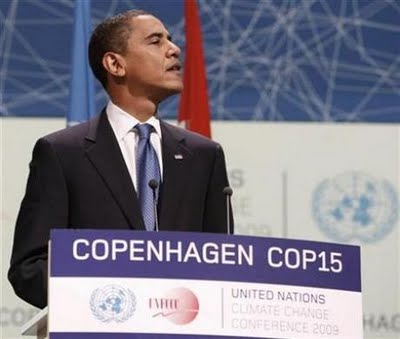Congress-Please Wake Up on Climate Change
Congress, please wake up. Climate change is here, it's real, and it's about to hammer us if we don't take immediate action. I know that Detroit is suffering from 50% unemployment. I know that there are not many other happy places in the U.S. economically. I happen to live in one of the deepest poverty regions of the country, the San Joaquin Valley. However, the depression will pass. Climate change will not pass and is apparently not subject to economic cycles. If we, as a nation, do not take leadership on this, we could be facing the mother of all economic depressions a lot sooner than anyone expects.
I appreciate the fact that Representatives must face re-election every two years and that their job security rests on their ability to convince the voters in their districts that they are protecting local financial, economic, and legal interests. The larger problem of climate change calls for a different type of leadership, however. Instead of reacting to your neighbors, friends, and supporters at home, can you, members of Congress, unify and lead those people? Can you educate yourselves on the facts, not the polemics, of climate change? Can you be public stewards and resist insistent, parochial demands for quick fixes, jobs, money, safety, and security? Can you help the people accept the need for dramatic changes in energy use when the medicine tastes bad? Can you look at the problem of climate change in terms other than a zero-sum, distributive, winner-take-all political competition or negotiation? Can you instead look at climate change as an opportunity to collaborate, to invest in new technologies, to create jobs that have never existed before, and to rebuild our national infrastructure? Can you resist the lobbyists for the extraction industries that seek to continue business in the same patterns that have created the environmental crisis we now face? Can you face up to the fact that this is not Republican vs. Democrat political gamesmanship?
If you cannot, the conflicts, fights, disputes, and wars will be like none you have ever seen as people around the world fight for food,water, and arable land. If you cannot, the depression of 2007-2010 will seem like a mild economic correction compared to the potential devastation of a collapsed world economy. If you cannot, the plaintive cries of your constituents will turn to screams of anger at you, demanding that you answer why you did not take action sooner. Look into the future. You can see what is coming--it is a locomotive heading right at us. Will you slow it down or will you allow it to crush us all?
Please wake up and take action.
Labels: change, climate, Congress, Copenhagen, election, jobs, leadership, Obama, unemployment


